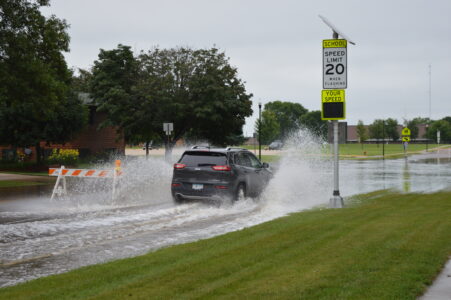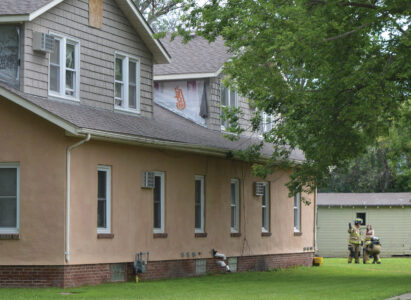Walz: Pre-kindergarten offers ‘biggest bang for the buck’
Marshall gets funding to maintain 72 voluntary pre-kindergarten spots
ST. PAUL — Pre-kindergarten programs offer the “biggest bang for the buck,” said Governor Tim Walz Monday afternoon in a statewide telephone press conference on the education budget. “Readiness for kindergarten saves us a lot in resources in the long run and prepares our students in a much better way.”
Walz said pre-K will be a “cornerstone of his next budget.”
The education bill was signed May 30. Education spending takes up nearly half the state’s general fund budget and is typically one of the last things lawmakers agree on before wrapping up their work at the Legislature.
The bill calls for $20 billion in spending over the next two years on preschool through high school which includes a $388 million increase in the per-pupil funding formula districts use for operations. That works out to an increase of 2% each of the next two years.
Marshall will receive an additional $2,128,316 in education funding over the biennium including $1,201,390 in general education funding, $192,468 in special education, and funding to maintain 72 voluntary pre-kindergarten spots, according to the Minnesota Department of Education.
Walz and Mary Cathryn Ricker, education commissioner, answered questions in a conference call with Greater Minnesota press to discuss the education budget.
Ricker said she has traveled the state visiting schools and heard from “parents and community members who had a bunch of creative ideas to invest in the education of our students.”
Schools must finalize their own spending and revenue plans by June 30, so superintendents were given “real time” information so they can approve budgets for the next school year, said Ricker.
Tom Melcher, director of the Program Finance Division at the Minnesota Department of Education, provided that information to districts and said he had had a “very enjoyable trip going everywhere from Marshall to Baudette to Hermantown, to Ottertail to Staples.”
Walz said he was satisfied with the education budget outcome.
“We want the answer to ‘where would I like to send my children to public schools?’ it would be in Minnesota,” he said. “And where do teachers want to teach? A place where we’re valued, a place where there is resources, where there is the opportunity in the classroom to make a difference and that’s Minnesota. We are proud of this product. It was a product of compromise, but more importantly, a product of shared values, about what Minnesota cares about.”
Walz said with this budget, “we significantly moved the needle, we had to move down a little bit obviously, but not down in terms of the investments we wanted to make in those fundamental core places of making sure the funding formula was there.”
The bill has an $388 million increase in the per-pupil funding formula districts use for operations. That works out to an increase of 2% each of the next two years.
“That’s the place where the schools have the most flexibility,” he said.
A question from a reporter in Duluth spoke to the fact that in his region, three school districts have offered multiple failed referendums. He asked how can those school districts keep their schools operational and up-to-date.
Ricker said that where the increase in the per-pupil funding formula comes in.
“Other districts have had failed referendums as well,” said Ricker. “We want to make sure that our school districts feel the full effect of that formula increase, that 2 percent increase.”
“You’ve heard me many times talk about wanting to make these referendums either rare or extinct,” said Walz. “We want funding across Minnesota that isn’t dependent on your property tax base, that your quality of education could still be there. We worked for some ways on the equalization funding. We know the ag land, we worked to take some pressure off that. To be honest, it was an untenable situation where 70 percent of the tax money came from 10 percent of the base because of agricultural influence.”
“Since the 1980s, Minnesota started moving away from equalization,” Walz said. “We want to move toward, to make sure that every child’s education is not dependent on those referendums.”
Walz said much of school districts’ general budget had to go to meeting the federal mandates on special education.
Walz echoed Ricker’s comments that the numbers are based on what “stakeholders” have told them.
“This gives them the stability that they needed,” he said. “Our future is absolutely dependent on the education we give to our children from pre-K to higher ed.”



